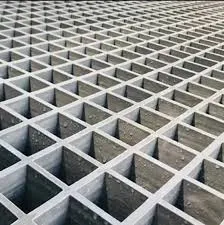
-
 Afrikaans
Afrikaans -
 Albanian
Albanian -
 Amharic
Amharic -
 Arabic
Arabic -
 Armenian
Armenian -
 Azerbaijani
Azerbaijani -
 Basque
Basque -
 Belarusian
Belarusian -
 Bengali
Bengali -
 Bosnian
Bosnian -
 Bulgarian
Bulgarian -
 Catalan
Catalan -
 Cebuano
Cebuano -
 China
China -
 China (Taiwan)
China (Taiwan) -
 Corsican
Corsican -
 Croatian
Croatian -
 Czech
Czech -
 Danish
Danish -
 Dutch
Dutch -
 English
English -
 Esperanto
Esperanto -
 Estonian
Estonian -
 Finnish
Finnish -
 French
French -
 Frisian
Frisian -
 Galician
Galician -
 Georgian
Georgian -
 German
German -
 Greek
Greek -
 Gujarati
Gujarati -
 Haitian Creole
Haitian Creole -
 hausa
hausa -
 hawaiian
hawaiian -
 Hebrew
Hebrew -
 Hindi
Hindi -
 Miao
Miao -
 Hungarian
Hungarian -
 Icelandic
Icelandic -
 igbo
igbo -
 Indonesian
Indonesian -
 irish
irish -
 Italian
Italian -
 Japanese
Japanese -
 Javanese
Javanese -
 Kannada
Kannada -
 kazakh
kazakh -
 Khmer
Khmer -
 Rwandese
Rwandese -
 Korean
Korean -
 Kurdish
Kurdish -
 Kyrgyz
Kyrgyz -
 Lao
Lao -
 Latin
Latin -
 Latvian
Latvian -
 Lithuanian
Lithuanian -
 Luxembourgish
Luxembourgish -
 Macedonian
Macedonian -
 Malgashi
Malgashi -
 Malay
Malay -
 Malayalam
Malayalam -
 Maltese
Maltese -
 Maori
Maori -
 Marathi
Marathi -
 Mongolian
Mongolian -
 Myanmar
Myanmar -
 Nepali
Nepali -
 Norwegian
Norwegian -
 Norwegian
Norwegian -
 Occitan
Occitan -
 Pashto
Pashto -
 Persian
Persian -
 Polish
Polish -
 Portuguese
Portuguese -
 Punjabi
Punjabi -
 Romanian
Romanian -
 Russian
Russian -
 Samoan
Samoan -
 Scottish Gaelic
Scottish Gaelic -
 Serbian
Serbian -
 Sesotho
Sesotho -
 Shona
Shona -
 Sindhi
Sindhi -
 Sinhala
Sinhala -
 Slovak
Slovak -
 Slovenian
Slovenian -
 Somali
Somali -
 Spanish
Spanish -
 Sundanese
Sundanese -
 Swahili
Swahili -
 Swedish
Swedish -
 Tagalog
Tagalog -
 Tajik
Tajik -
 Tamil
Tamil -
 Tatar
Tatar -
 Telugu
Telugu -
 Thai
Thai -
 Turkish
Turkish -
 Turkmen
Turkmen -
 Ukrainian
Ukrainian -
 Urdu
Urdu -
 Uighur
Uighur -
 Uzbek
Uzbek -
 Vietnamese
Vietnamese -
 Welsh
Welsh -
 Bantu
Bantu -
 Yiddish
Yiddish -
 Yoruba
Yoruba -
 Zulu
Zulu
frp trough cover
Understanding FRP Trough Covers Advantages and Applications
Fiber Reinforced Polymer (FRP) trough covers have gained significant attention across various industries due to their unique properties and advantages. These covers are specially designed to protect troughs, channels, and pits from environmental factors and contaminants, ensuring the integrity of the materials stored or conveyed within. In this article, we will explore the benefits of FRP trough covers and their common applications.
What is FRP?
FRP, or Fiber Reinforced Polymer, is a composite material made from a polymer matrix reinforced with fibers. The most common fibers used are glass, carbon, and aramid, which provide strength and durability. The combination of these materials results in a lightweight, yet strong and corrosion-resistant product. This makes FRP an ideal choice for applications in various industries, particularly where exposure to harsh conditions is a concern.
Benefits of FRP Trough Covers
1. Corrosion Resistance One of the most significant advantages of FRP trough covers is their resistance to corrosion. Unlike traditional materials such as metal or wood, FRP does not rust or decay when exposed to moisture, chemicals, and environmental factors. This property drastically reduces maintenance costs and prolongs the life of the trough cover.
2. Lightweight and Easy to Install FRP trough covers are considerably lighter than metal counterparts. This characteristic not only simplifies transportation but also makes installation easier, requiring less labor and reducing overall project costs.
3. Customizability FRP covers can be easily customized to fit various dimensions and shapes. Manufacturers can create specific designs to meet the unique requirements of a project, ensuring optimal functionality and effectiveness.
4. UV Resistance Exposure to ultraviolet (UV) rays can degrade many materials, leading to brittle surfaces and decreased performance. FRP trough covers are engineered to withstand UV radiation, maintaining their strength and appearance over time.
5. Thermal Insulation Another beneficial characteristic of FRP is its thermal insulation properties. These covers can help maintain desired temperatures within troughs, providing an added layer of protection, especially in applications involving sensitive materials.
frp trough cover

6. Safety Features Many FRP trough covers are designed with slip-resistant surfaces, enhancing safety for workers who may need to access the area. This is particularly important in industrial settings where spills or accidents could pose significant hazards.
Applications of FRP Trough Covers
FRP trough covers are versatile and can be utilized in various industries. Some of the most common applications include
1. Water and Wastewater Management FRP trough covers are widely used in treatment plants to cover trenches and channels where water is processed. Their resistance to chemicals and moisture makes them an optimal choice in environments where traditional materials would fail.
2. Industrial Settings In factories and processing plants, FRP trough covers protect materials from contaminants and environmental conditions, ensuring product quality and safety.
3. Agriculture Farmers use FRP trough covers to protect irrigation channels and storage pits from debris and evaporation. The lightweight nature of FRP makes it easier to handle and install in challenging agricultural settings.
4. Mining and Petrochemical Industries In environments that expose materials to harsh chemicals, FRP trough covers offer exceptional durability and resistance, making them a preferred choice for these sectors.
5. Transportation Infrastructure FRP trough covers can also be found in transportation applications, such as stormwater management systems and drainage channels. Their ability to withstand the elements makes them ideal for outdoor use.
Conclusion
FRP trough covers provide a robust solution for various applications, combining durability, lightweight design, and resistance to harsh environmental conditions. Their versatility makes them suitable for a wide range of industries, from water management to agriculture. As industries continue to seek materials that are not only effective but also sustainable, the demand for FRP solutions like trough covers is expected to grow. Investing in FRP trough covers is a step towards enhanced performance, safety, and long-term cost savings.









